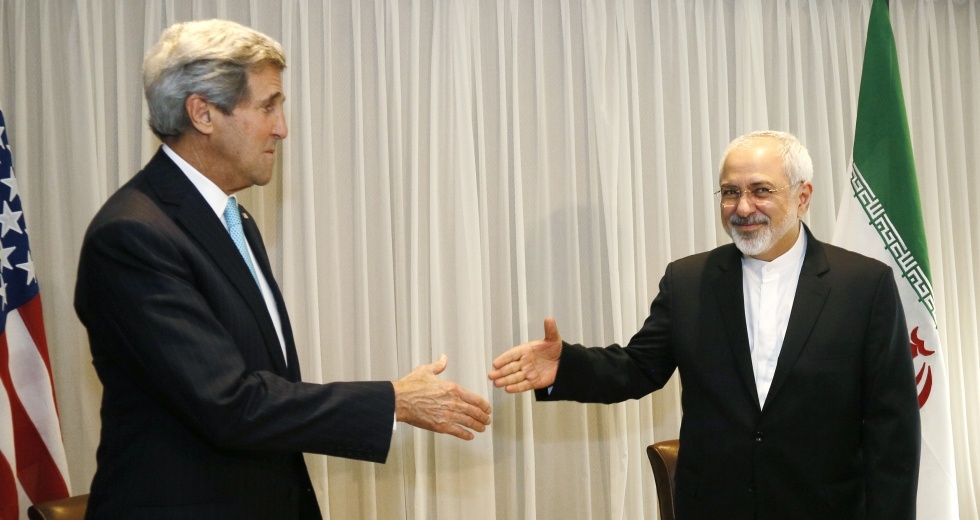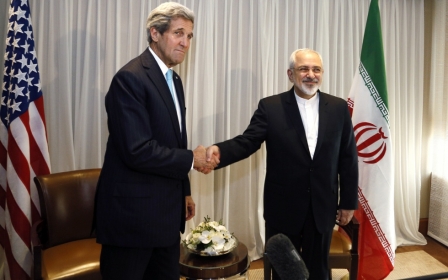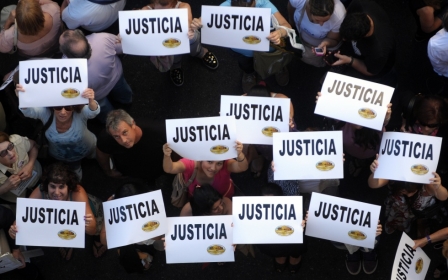Iran MPs criticise foreign minister for 'symbolic' walk with Kerry

A group of Iranian MPs on Sunday submitted a formal reprimand of the country’s foreign minister for walking with his US counterpart during nuclear negotiations in Geneva.
The 21 Iranian members of parliament have raised two questions over what they describe as Foreign Minister Mohammad Javad Zarif's "two diplomatic mistakes" and have called on Zarif to attend a parliamentary session to respond to them.
"Mr Minister of Foreign Affairs! Unfortunately the marginal issues during Iran’s nuclear negotiations with 5+1 have been repeated again in Geneva and it means some diplomatic mistakes committed by the senior delegation of the Islamic Republic of Iran," the MPs declared in their statement, Iran's semi-official Fars News Agency reported.
"Your symbolic walk with United States Secretary of State [John Kerry] and travel to France which is the country whose magazine Charlie Hebdo has insulted the values of Muslims were not appropriate for the Iranian Minister of Foreign Affairs," they added.
Last Wednesday in Geneva, Kerry held intensive talks with Zarif on Tehran's disputed nuclear programme and the two had a walk along the Rhone River flowing out of Lake Geneva.
Iran had condemned the killing of 12 people in Paris following the publication of offensive cartoons of the Prophet Muhammad by Charlie Hebdo magazine.
"All acts of terrorism against innocent people are alien to the doctrine and teachings of Islam," foreign ministry spokeswoman Marzieh Afkham told the official IRNA news agency earlier this month.
However, Iran's former supreme leader Ayatollah Khomeini had issued a death fatwa in 1989 against Salman Rushdie, a British author of Indian origin, for his book The Satanic Verses, saying it was against Islam, the Prophet and the Quran.
He called on Muslims to murder the award-winning author and anyone involved in the publication of his work.
A decade later, Iran's foreign minister said his country no longer threatened Rushdie's life or encouraged others to kill him.
New MEE newsletter: Jerusalem Dispatch
Sign up to get the latest insights and analysis on Israel-Palestine, alongside Turkey Unpacked and other MEE newsletters
Middle East Eye delivers independent and unrivalled coverage and analysis of the Middle East, North Africa and beyond. To learn more about republishing this content and the associated fees, please fill out this form. More about MEE can be found here.




